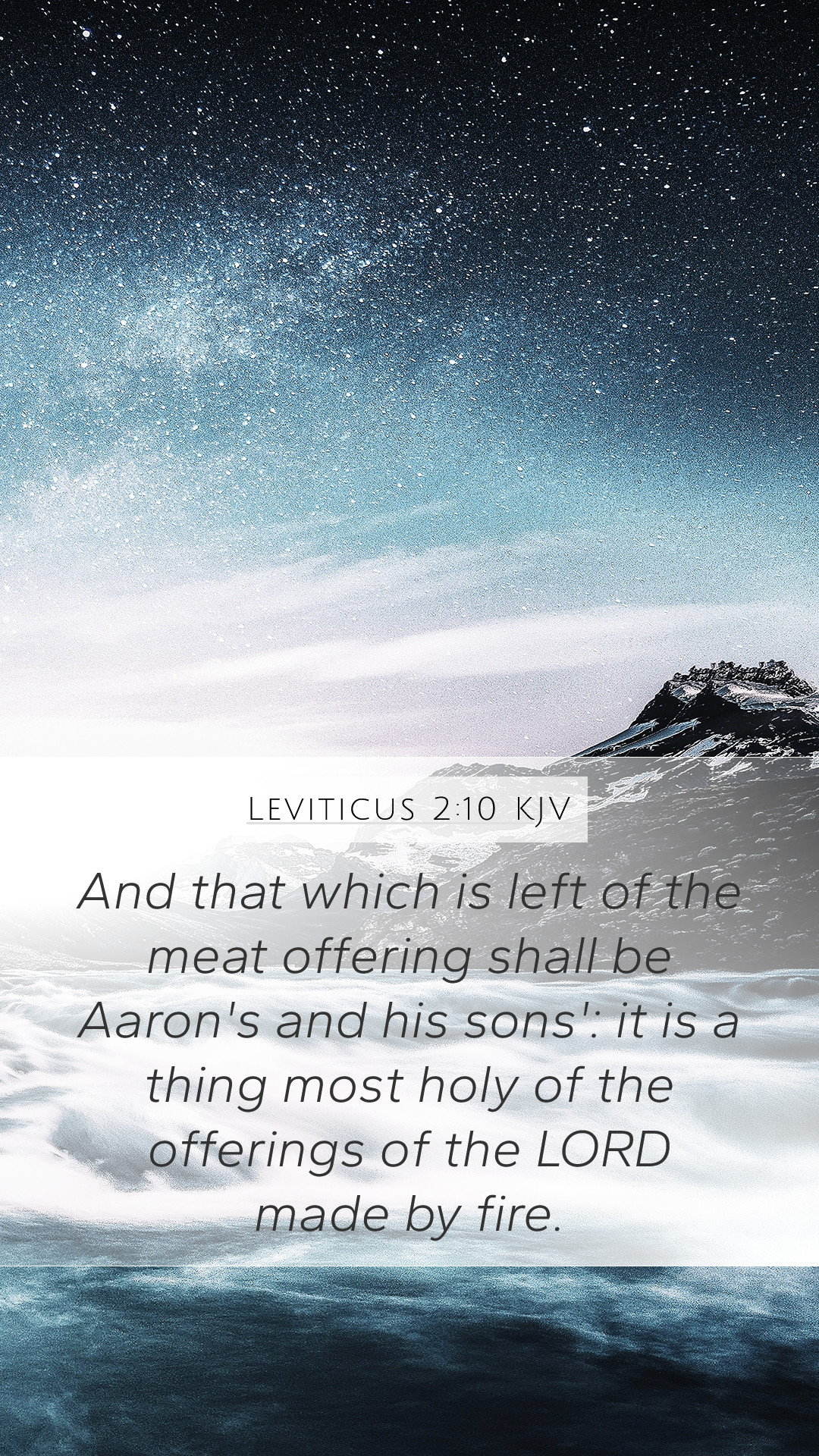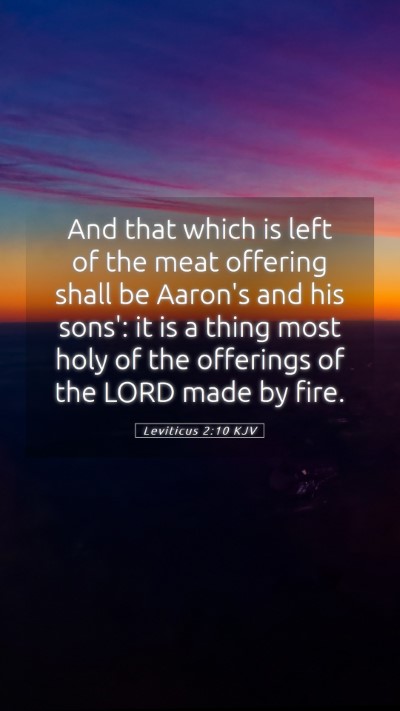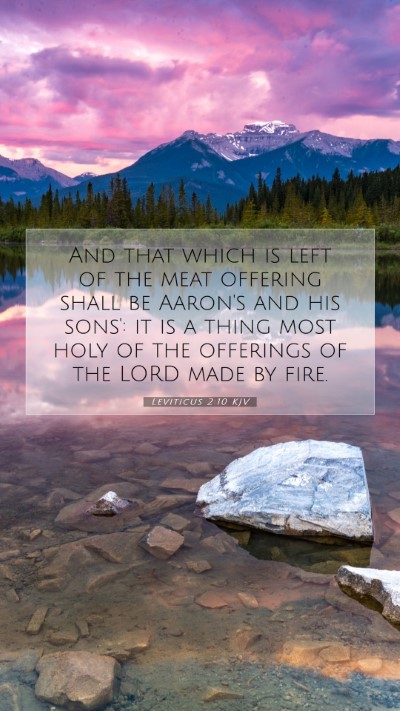Understanding Leviticus 2:10
Leviticus 2:10 states: "And that which is left of the meat offering shall be Aaron's and his sons': it is a thing most holy of the offerings of the Lord made by fire." This verse is part of the instructions for the offerings presented to God and emphasizes aspects of holiness, priestly duties, and the significance of offerings in worship.
Bible Verse Meanings and Interpretations
This verse can be understood through various lenses, including its historical context, sacrificial practices, and its implications for holiness and priestly roles within the Old Testament sacrificial system.
1. Historical Context
In the book of Leviticus, God provides detailed instructions to the Israelites regarding the sacrificial system, including the meat offerings (or grain offerings). These offerings were made to express gratitude, devotion, and commitment to God. The reference to Aaron and his sons highlights the priestly class (the Levites) designated to perform these religious duties.
2. Significance of the Offering
- Most Holy: Matthew Henry notes that this offering is considered "most holy," demonstrating the seriousness with which the Israelites must approach their sacrifices.
- Priestly Allocation: It signifies that a portion of the offerings was reserved for the priests, reflecting God's provision for those serving in His ministry, ensuring their sustenance.
- Symbol of Community: The offering was a communal expression of worship, as it involved the entire community's sacrifice to God, thus reinforcing their relationship with Him.
3. Priestly Duties and Holiness
Albert Barnes elaborates on the priestly role in this practice. The instructions underline that not only are the offerings to be made correctly, but they also highlight the sanctity of the priest's life and duties. The priests, Aaron and his sons, served as intermediaries between God and the people. Their collection of the leftover offerings emphasizes their role in maintaining holiness and ensuring that the offerings were treated with the utmost respect.
4. Theological Implications
Adam Clarke points out that the leftover offerings being classified as "most holy" denotes God's desire for purity and holiness in worship. It implies that everything pertaining to divine worship must meet a standard of holiness, reflective of God's nature. The offerings aren't merely rituals, but they serve as a means of maintaining a right relationship with God.
5. Application to Daily Life
The principles drawn from Leviticus 2:10 can be applied to modern-day faith practices. It encourages believers to see their offerings—be it time, resources, or talents—as sacred acts of worship. Understanding the significance of sacrificial giving informs how one can develop a heart of gratitude and service.
Cross References
- Exodus 29:28 - Instructions regarding the offerings for the priests.
- Leviticus 1:6-8 - Overview of offerings and the role of the priest.
- Hebrews 10:11-14 - New Testament reflection on the priestly sacrifices.
Conclusion
Leviticus 2:10 serves as a profound reminder of God's holiness and the sacred responsibilities of those who serve Him. In understanding this verse, one can uncover deep theological insights, appreciate the structure of biblical offerings, and apply the underlying principles of holiness and service to contemporary Christian practice. As believers seek a deeper understanding of Scripture, engaging with commentaries and biblical analysis tools enriches their Bible study experience and nurtures spiritual growth.


